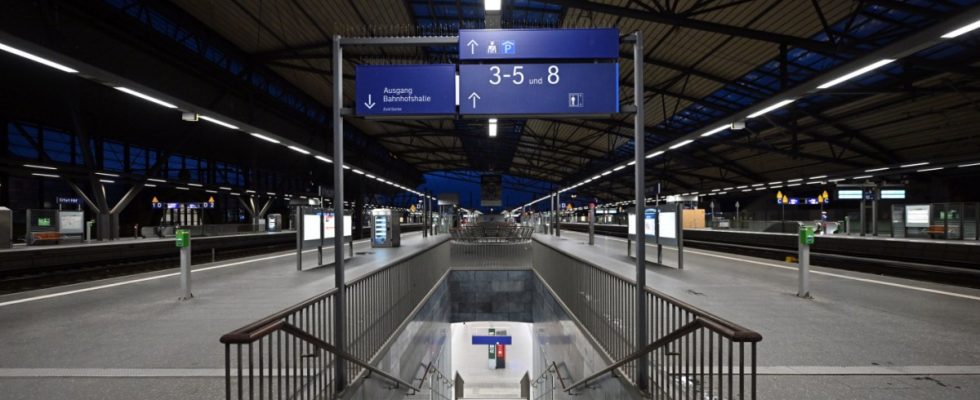Collective bargaining at Deutsche Bahn has failed for the time being. The railway union EVG said on Wednesday evening “after a long and very intensive discussion”, as EVG negotiator Kristian Loroch said. The union wants to discuss how to proceed on Thursday.
Deutsche Bahn, in turn, criticized the termination of the talks “strongly”, as HR Director Martin Seiler said. “The EVG throws away an almost completed agreement and sets everything to zero shortly before the goal. An agreement was within reach, 140 pages of tariff text are already finished. What is happening now is unbelievable.”
The next strike on the railways is therefore likely, possibly in the coming days or weeks. In the collective bargaining round that has been running since the end of February, the EVG has already paralyzed train traffic twice – in March and April – for one day or for several hours. A third 50-hour warning strike in May was averted only by a last-minute court settlement; the management of the railway had sued against it.
It is considered possible that the EVG is now turning the spiral of escalation even more. It could initiate a strike ballot on an indefinite strike or announce a renewed warning strike greater than the level of previous work stoppages. This would affect rail customers at one of the busiest times of the year; The summer holidays in North Rhine-Westphalia, the largest federal state, begin on Thursday.
There can still be an agreement – or an arbitration
However, such an announcement would not be equated with an actual strike. It is not uncommon for the union and employer to meet again afterwards, with the employer improving the offer and still averting industrial action. This is how it went in March, for example, at the post office: the Verdi union had held a ballot there, the employees spoke out in favor of an indefinite strike – but before they actually stayed at home, there was finally an agreement. An arbitration, which also brought an agreement after the failure of the negotiations in the public sector in the spring, would also be possible with the railways. EVG has already reached an agreement with other regional train companies.
The EVG justified the termination of the negotiations with the fact that the prospective term of the collective agreement at Deutsche Bahn was “significantly too long” at 27 months. In addition, the wage increase offered was “too low” – although the union did not communicate the latest status of negotiations. The railway stated that it had once again significantly improved its offer (eight to 12 percent more wages plus an inflation compensation premium of 2850 euros); she promised a “high fixed amount” as a salary increase. Such a fixed amount is particularly important to the EVG, which asks for an additional 650 euros per month. In addition, she only wanted to conclude the collective agreement for twelve months so that she could then quickly negotiate higher salaries again.
For some groups of employees, the railways were even willing to add something extra, said Seiler: “In maintenance, workshops and signal boxes alone, there would have been an additional wage increase of an average of 7.5 percent.” All partial agreements are now off the table due to the termination of the talks. Nevertheless, the railway is calling on the EVG to quickly come to a good solution “for the benefit of employees, passengers and the company”. However, it has become unlikely that this quick solution will work after the talks were broken off.

